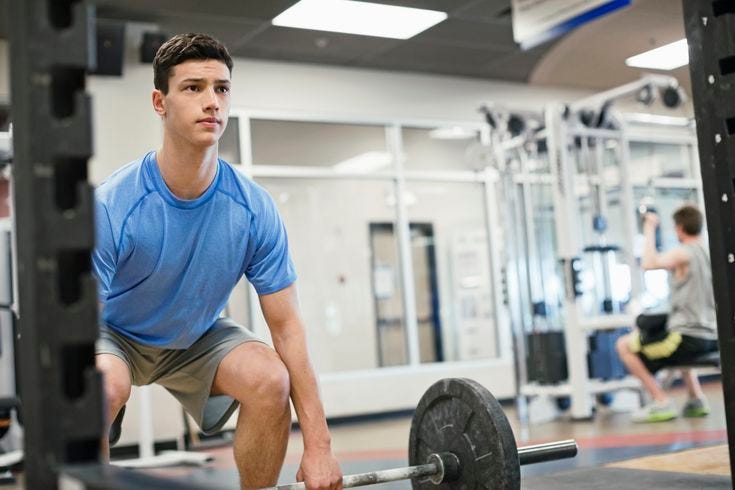The Benefits of Weightlifting for Pre-teens and Teens
Weightlifting often evokes images of bodybuilders or elite athletes; however, it is increasingly recognized as a beneficial activity for pre-teens and teens. Engaging in weightlifting can provide numerous physical, psychological, and social benefits that contribute to overall development. This paper explores these benefits, highlighting the importance of proper training and safety measures.
Physical Benefits
One of the primary advantages of weightlifting for young individuals is muscle development and strength enhancement. Weightlifting promotes muscle hypertrophy, which is crucial during the growth spurts common in adolescence. Increased strength not only improves athletic performance but also aids in daily activities and reduces the risk of injuries. Weightlifting also stimulates the release of growth hormone and strengthens facia.
Another significant benefit of weightlifting is the improvement of bone density. Adolescence is a critical period for bone development, and weight-bearing exercises, including weightlifting, stimulate bone growth and increase bone density. This enhancement can help prevent osteoporosis later in life, establishing a solid foundation for future health.
Regular weightlifting can also boost metabolism. As muscle mass increases, the body burns more calories at rest. This heightened metabolic rate can help maintain a healthy weight and prevent obesity, a growing concern among today’s youth.
Moreover, weightlifting contributes to improved posture and balance. Strength training enhances core stability, which leads to better posture and balance. This is particularly important for pre-teens and teens, who may experience rapid physical changes during growth.
Psychological Benefits
Weightlifting is also associated with various psychological advantages. One of the most notable is the increase in self-esteem and confidence. As individuals see physical improvements in strength and appearance, they often feel more confident in themselves. This boost in self-esteem can positively impact other areas of life, including academics and social interactions.
In addition to enhancing self-esteem, weightlifting serves as an effective stress relief method. Physical activity, including weightlifting, is known to reduce stress and anxiety levels. The endorphins released during exercise can improve mood and create a sense of well-being, which is especially beneficial for teens facing academic and social pressures.
Another psychological benefit of weightlifting is the development of discipline and goal-setting skills. Weightlifting encourages individuals to set and achieve personal fitness goals. This practice can have far-reaching effects, teaching young people how to work towards and accomplish objectives in various aspects of life.
Social Benefits
Participating in weightlifting can help build relationships and foster friendships. Working out with peers or participating in weightlifting classes creates a sense of community and support that is essential during the formative years.
Engaging in weightlifting teaches valuable lessons in teamwork and sportsmanship. These skills, honed in a fitness environment, are transferable to other areas of life, including school and future workplaces.
Weightlifting also provides opportunities for mentorship. Teens often look up to coaches and older peers in fitness settings. Positive role models can inspire them to adopt healthy lifestyles and make informed decisions regarding their health and fitness.
Safety Considerations
While the benefits of weightlifting are substantial, it is crucial to approach this activity with caution. Proper training techniques, guidance from qualified instructors, and the use of appropriate equipment are essential to prevent injuries. Pre-teens and teens should always focus on mastering form and technique before increasing weights. Additionally, personalized training regimens should be developed, considering individual fitness levels and goals.
Stay gold!!!




